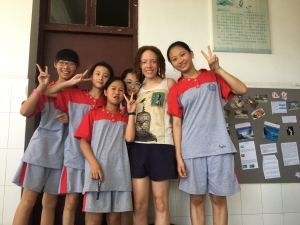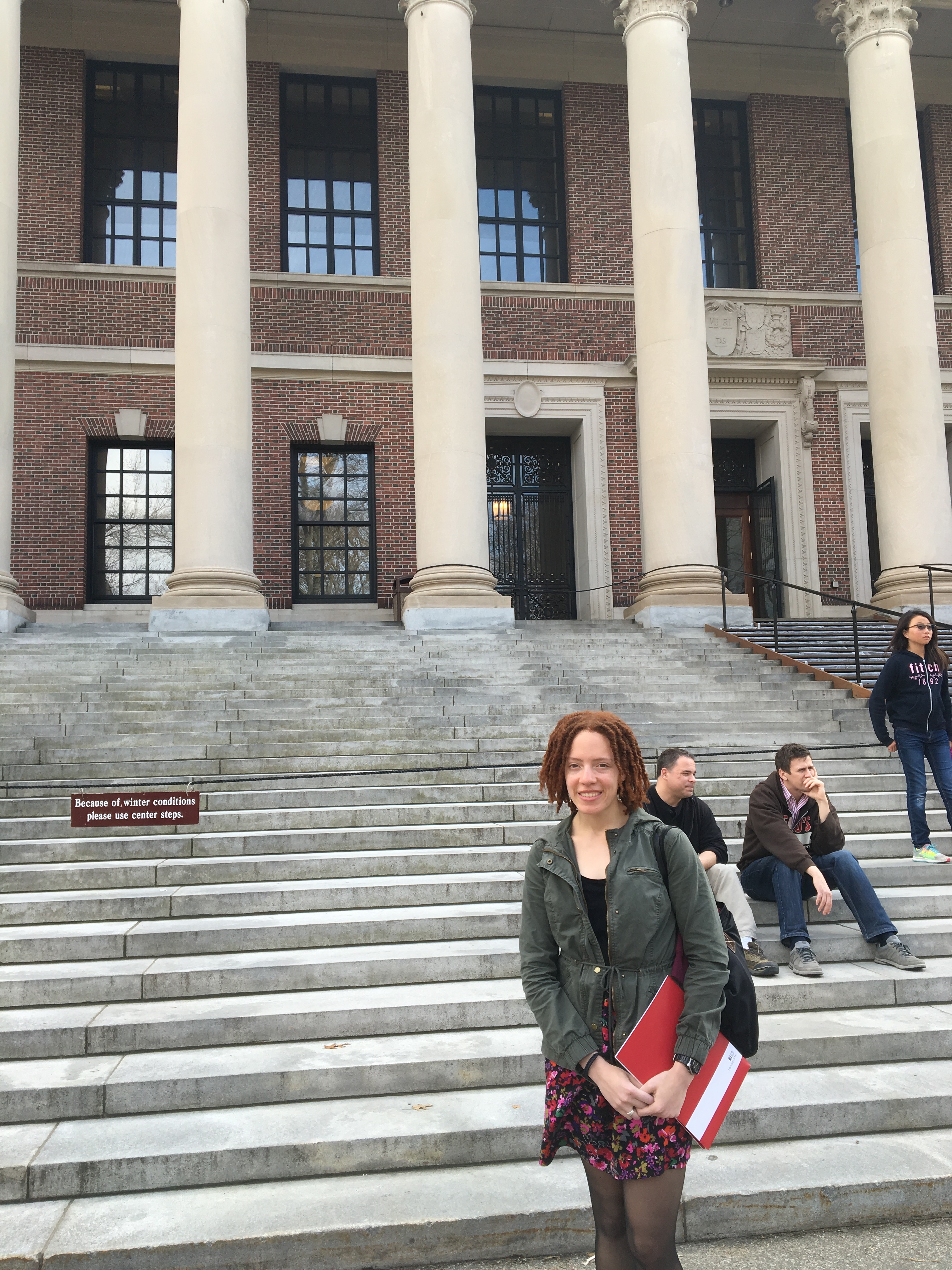Teaching English in China was an exciting and new experience for me. Never before had I taught children, nor had I been to China.
Regardless, the decision to participate in the summer teaching program in Haining has helped me considerably beyond my placement. After Teach English In China I have returned to the United States to continue my studies. I’m originally from Pennsylvania, USA and received my bachelor’s degree in Russian, Eastern European, & Central Asian Studies/ Political Science. After my summer in China I started my first semester at Harvard University as a Master’s Candidate in Russian Studies. Living in China over the summer has really helped me expand my worldview beyond what I had learned in my Russian studies courses. Before the program I had thought of China only in terms of geopolitics i.e. as a state actor. My time teaching English has helped me see China on a more local level. Talking to the teaching assistants gave me a better understanding of China through the daily life of the people. My teaching assistant told me about her aspirations to become an English Teacher herself and work in a school like the one in which we were placed. She helped familiarize me with the city of Haining and would translate for me when I had difficulties. Day-to-day interactions like this one helped me develop a deeper connection to Haining and the people and has made me more interested in studying China in graduate school.
Teach English In China has also helped me build confidence. Through the program I had the freedom to create and teach my own lesson plans. This was both an exciting and daunting prospect, but with help from my teaching assistant I was able to establish a teaching routine and developed my own style in the classroom. Now at Harvard I am more confident standing up in front of a group and giving project presentations. Teach English in China pushed me to find ways to present with clarity and engage with my audience. At Harvard I have already given a few presentations on my research topic and have received positive feedback about how open and expressive I was, even though I’m a naturally quiet person. I credit this change to all of the games that I organized for my students in China. Each class I organized a different game like hangman or role playing games to help the students practice their spoken English. In order to generate enthusiasm for these games I explained everything in an expressive and open way to encourage students to participate. I taught several classes a day and students of the same age group would react differently to the games. Some classes were more energetic, while others were more hesitant. I learned to adapt my style of presentation to accommodate each class and now at Harvard I’m more aware of my audience while presenting and am more creative in my methods to keep my presentations engaging. On a whole, teaching English has enhanced my public speaking skills in both casual and more professional settings at Harvard.

While all of my studies thus far have centered around the post-Soviet sphere, Teach English In China has helped me realize that in addition to Russia I want to study more regions of the world. This fall I am enrolled in a course titled “Great Power Competition in the International System”. In this course the class is divided into teams that represent each of the great powers — the United States, China, the European Union, Russia, and India. I am part of team China, and couldn’t be happier. Now that I have visited the region, it is easier for me to relate to the policies that we talk about in real terms on a local level. When discussing China’s domestic policies, I find myself thinking about how life would change in Haining, Beijing, or Shanghai. I also think about how these policies would affect the friends I have made. I remember one girl in particular, Noelle, who told me that she wanted to be a writer. At the end of the program Noelle wrote me a beautiful letter in English and told me that we could be sisters. She wants to write stories in English when she grows up. Now when I think about China, I think about Noelle and others, who will grow up in a more globalized world. I think about the ways in which the US and China interact and how that affects our perceptions of each other. I hope our countries will continue to work together especially through cultural exchanges so we can cooperate better on global issues that affect us all. Almost all of the students that I taught this summer have never left their native country. Though I hope someday students like Noelle and others will have the opportunity to travel and pursue careers both in China and abroad. As someone who hopes to pursue a career in politics in the future, I hope others in my position will take the time to learn about the world on a more individual level. Overall, Teach English In China has piqued my interest in China and I hope to find more ways to incorporate China into my studies and a future career in politics.
By Taylor Valley
Has this inspired you to begin your own teaching adventure in China? Explore our programs or head to our application page to get started today!


Leave A Comment
You must be logged in to post a comment.